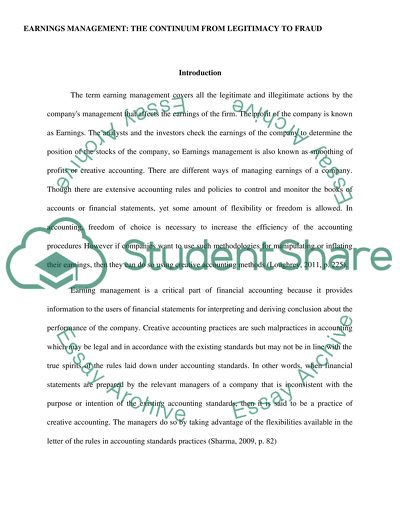Cite this document
(“The Continuum from Legitimacy to Fraud Research Paper - 1”, n.d.)
The Continuum from Legitimacy to Fraud Research Paper - 1. Retrieved from https://studentshare.org/finance-accounting/1453715-earnings-management-the-continuum-from-legitimacy
The Continuum from Legitimacy to Fraud Research Paper - 1. Retrieved from https://studentshare.org/finance-accounting/1453715-earnings-management-the-continuum-from-legitimacy
(The Continuum from Legitimacy to Fraud Research Paper - 1)
The Continuum from Legitimacy to Fraud Research Paper - 1. https://studentshare.org/finance-accounting/1453715-earnings-management-the-continuum-from-legitimacy.
The Continuum from Legitimacy to Fraud Research Paper - 1. https://studentshare.org/finance-accounting/1453715-earnings-management-the-continuum-from-legitimacy.
“The Continuum from Legitimacy to Fraud Research Paper - 1”, n.d. https://studentshare.org/finance-accounting/1453715-earnings-management-the-continuum-from-legitimacy.


